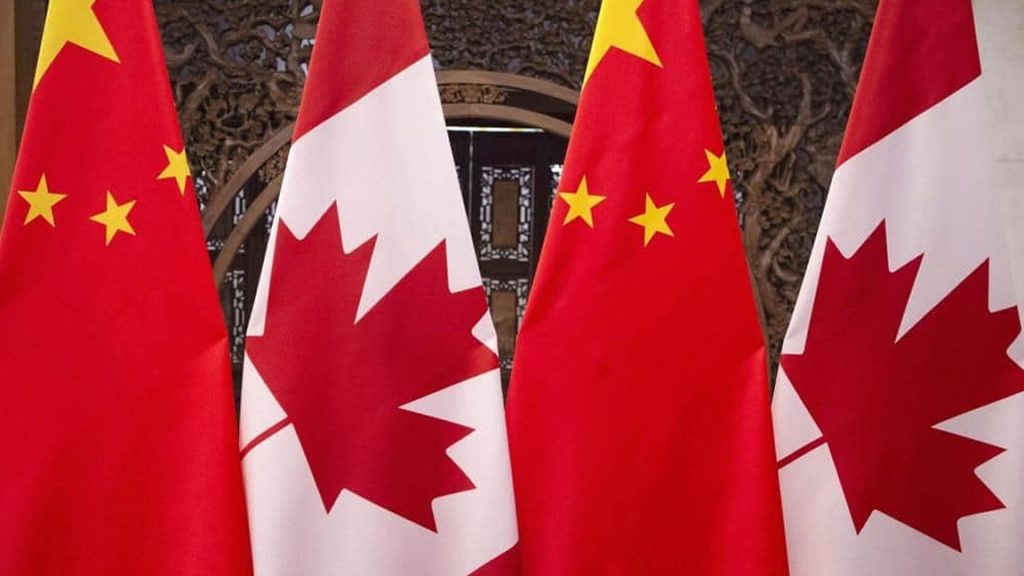BEIJING (AP) — On Saturday, China declared new retaliatory tariffs targeting certain farm and food imports from Canada. This action follows Canada’s imposition of tariffs in October 2023 on Chinese electric vehicles (EVs) and steel and aluminum products. The escalating trade tensions come amid ongoing international disputes involving major economies, including the United States, China, Canada, and Mexico.
The tariffs imposed by China are set to take effect from March 20. According to a statement released by the Customs Tariff Commission of the State Council, the new measures include an additional 100% tariff on Canadian rapeseed oil, oil cakes, and peas. In addition, a further 25% tariff will be levied on pork and aquatic products imported from Canada.
This move by China is described as a direct response to the hostile measures taken by Canada against Chinese imports. Canada announced in October 2023 a series of tariffs, including a 100% surtax on all Chinese-made electric vehicles and a 25% duty on imported steel and aluminum. Chinese authorities have criticized these Canadian actions as unilateral and restrictive, asserting they have been enacted without proper investigation into their impact.
In the statement by Chinese customs officials, it was expressed that Canada’s actions have undermined the economic and trade relations between the two nations. It emphasized that despite China's efforts to dissuade Canada from such measures, the Canadian government proceeded with tariffs that disrupt the normal trade order and harm the interests of Chinese enterprises.
The decision to levy these retaliatory duties follows an "anti-discrimination probe" conducted by China, which determined that Canada’s tariffs on certain Chinese products were disruptive to trade and detrimental to Chinese businesses. The ongoing tit-for-tat of tariffs is a reflection of an increasingly complex and strained economic relationship between Canada and China.
It is important to note that Canada had previously announced tariffs targeting Chinese goods in August 2023, aligned with similar actions taken by the United States and the European Union. These Western governments argue that Chinese subsidies provide unfair advantages to their domestic industries, thereby warranting protective measures in international trade.
The implementation of these tariffs not only intensifies the trade friction between Canada and China but also adds another layer of complexity to the global trading environment. As countries grapple with the implications of protectionist policies, the repercussions of these trade battles may affect not just the involved nations but also the broader international economy.
Simina Mistreanu, The Associated Press










